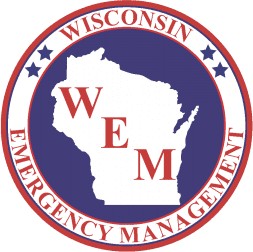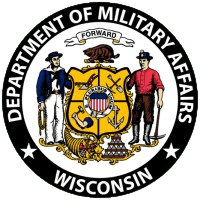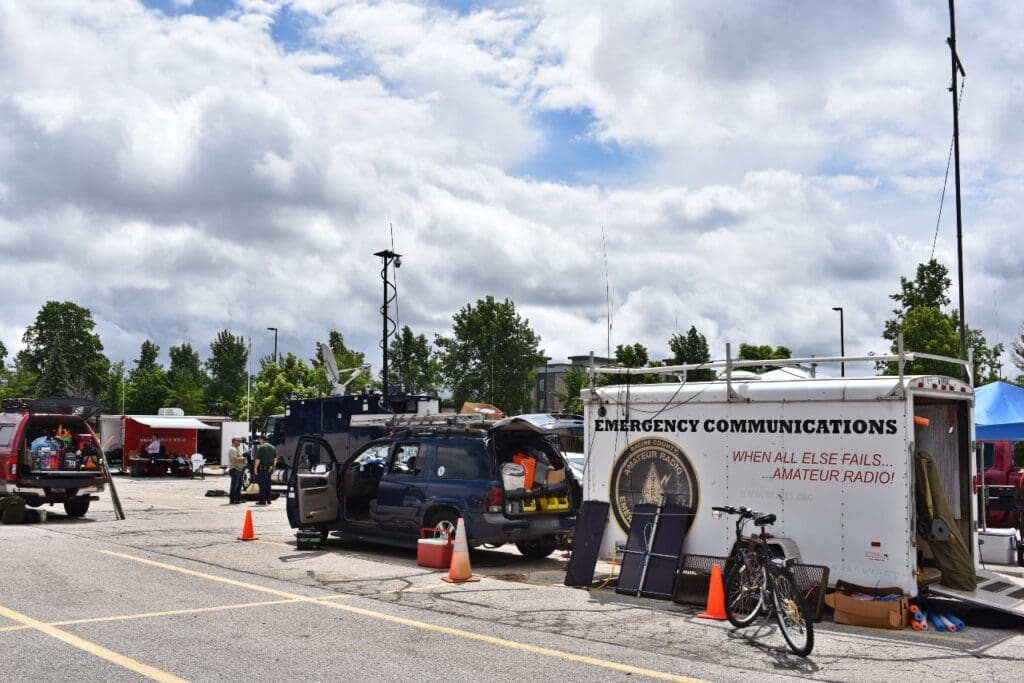
Whether it is a disaster or a major event, communication is key to a successful response. Dozens of participants tested their skillsets and validated their communications plans during the State Interoperable Mobile Communication (SIMCOM) exercise, which took place June 4-5 at Wisconsin State Fair Park in West Allis.
Among the participants in this year’s exercise was Myron Oestreich, an amateur radio operator from Wood County. He is a member of the county’s Amateur Radio Emergency Service/ Radio Amateur Civil Emergency Service/Auxiliary Communications. While it was his fourth time participating in the annual exercise, he said there are still valuable learning opportunities.
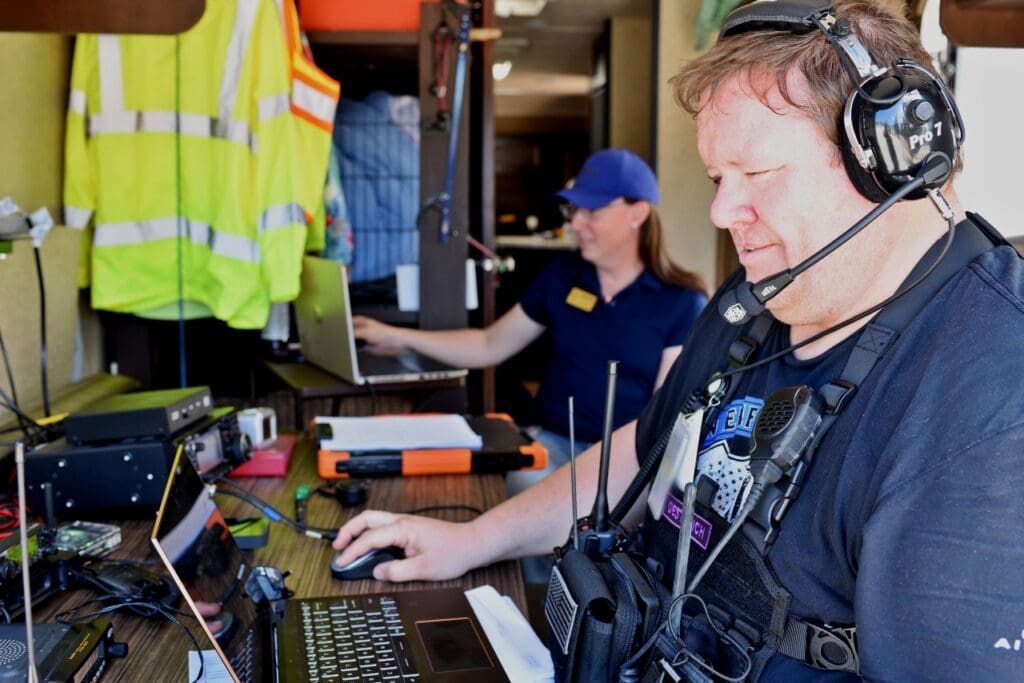
“SIMCOM provides an opportunity for teachable moments to build bridges and bonds while we learn from each other,” said Oestreich. “For amateur radio operators, it helps us get familiar with different agencies and partners prior to an emergency or event.”
Nearly 100 participants representing 20 agencies and organizations tested equipment and capabilities.
“A lot of different ways to communicate can happen between different entities, whether it’s public safety or amateur radio operators,” said Oestreich. “With large-scale events coming up, SIMCOM is a big step to helping us be ready for those types of incidents.”
One of the large-scale events Wisconsin will be hosting in a few weeks is the Republican National Convention (RNC) in Milwaukee. The scenario presented to participants was based on the work many different communications partners may being doing during a significant event, such as the RNC.
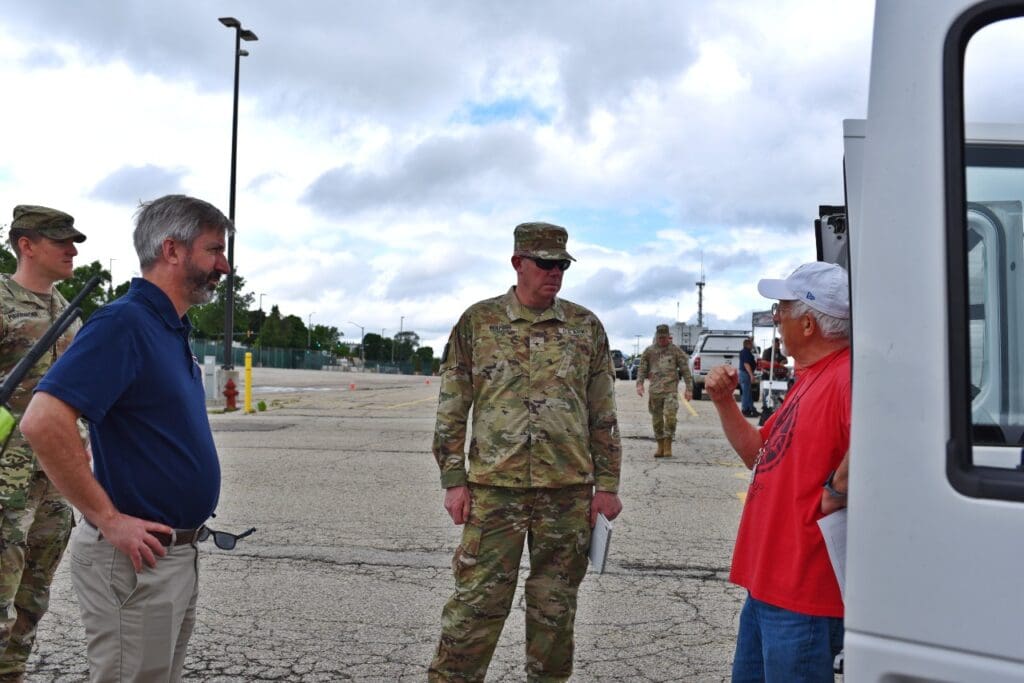
“To work in the general area where that event will occur gives us an opportunity to prove our capabilities,” said Brig. Gen. Matthew Beilfuss, Wisconsin’s deputy adjutant general for civil support. “SIMCOM is a valuable opportunity for the Wisconsin National Guard to work with state, local, and federal partners prior to being engaged in an event.”
One of the goals of SIMCOM is having the ability to display, coordinate, test and display emergency communication platforms. Those platforms come in a variety of forms, including vans, trailers, or mobile communications units.
“The thing we want to ensure is interoperability with partners in the communications world,” said Wisconsin Emergency Management Training Supervisor Troy Klemstein. “It is crucial to be able to talk to each other, across organizational lines in order to have a successful response to any situation.”
“If we can’t communicate during a major crisis, we’re dead in the water,” said Racine County Emergency Management Director Alex Freeman. “Figuring this stuff out on the fly when an incident is occurring is not ideal. Figure out how you are going to interoperate, familiarize yourself with what you have and partners have, ahead of time, so you can hit the ground running when the incident occurs.”
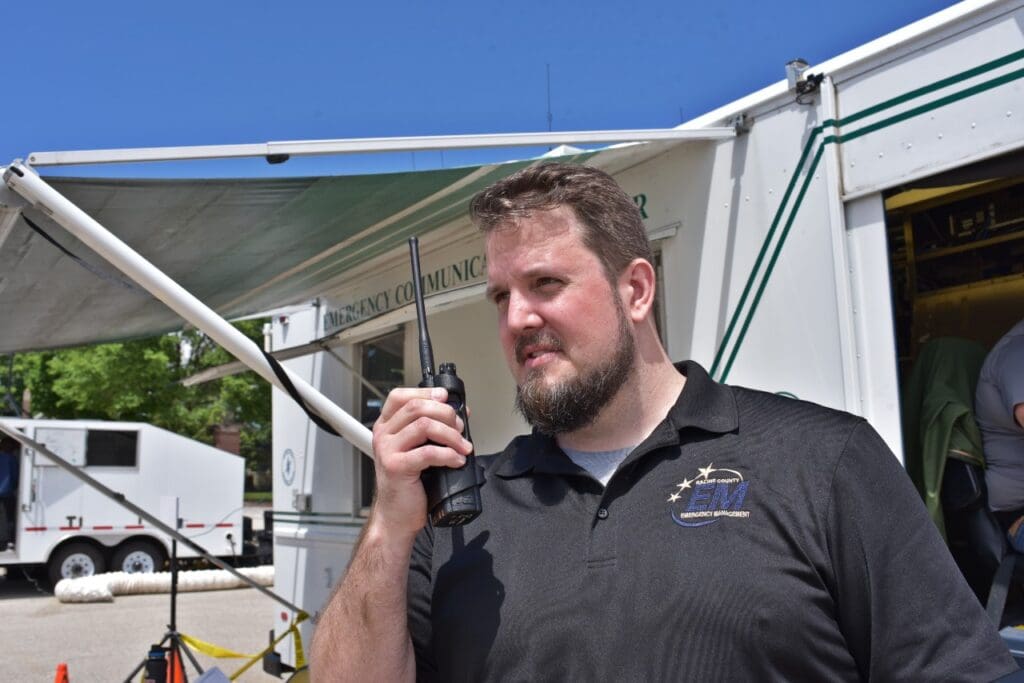
Freeman, along with several other participants, also used the exercise as an opportunity to become qualified, certified and credentialed in various communications positions. He is hoping to add communications unit leader to his incident management skills. The position supervises the deployment of communications systems and equipment, establish and oversee an incident communications center, and helps to ensure all incident personnel can communicate with each other.
“Right now, I am working through a task book to become certified as a communications unit leader,” said Freeman. “It’s not only to improve my communications knowledge and capabilities, but to also work with the Southeast Wisconsin Incident Management Team, which I am a member of. I could be deployed to incidents in communities throughout the southeast region or the entire state to help with communications needs.”
Whether it is working on communications capabilities or familiarizing oneself with mobile communications equipment, one of the biggest takeaways from SIMCOM is the networking opportunity it provides.
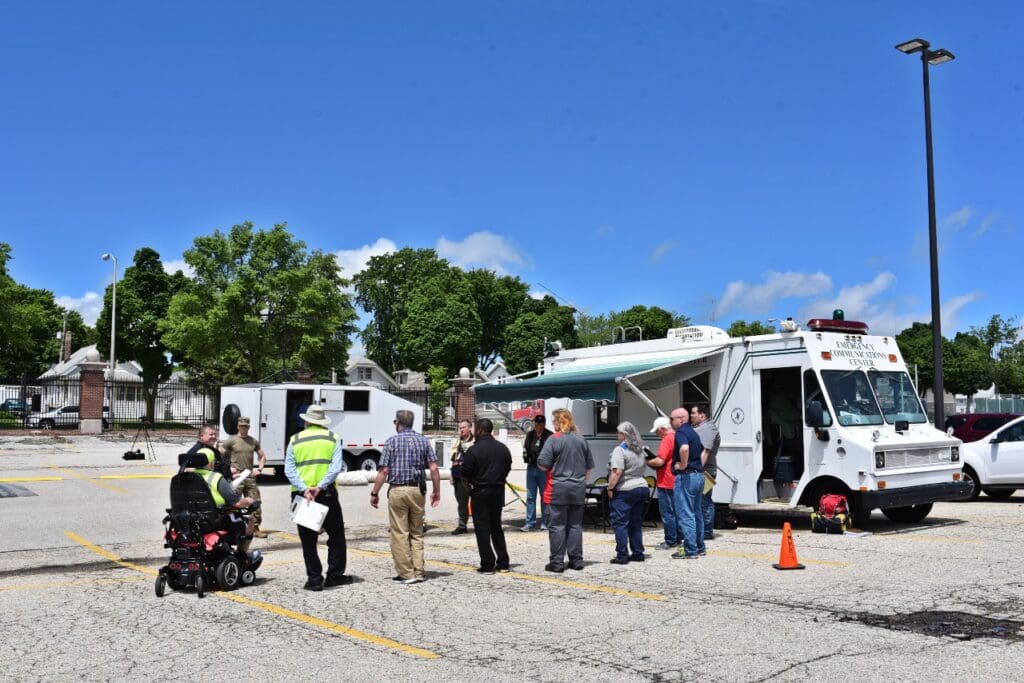
“I’m a firm believer in exercises as one of the most important things responders can do to be ready for real-world events,” said Wisconsin Emergency Management Administrator Greg Engle. “SIMCOM not only allows communicators to test systems, train, and validate plans, it helps us build relationships. Partnerships are what makes this event a success, it helps us build relationships.”
“You may see some of the people at this exercise regularly or you may see them once a year,” said Oestreich. “The networking at SIMCOM provides an opportunity to share ideas, new or old thoughts, and make it all work.”
“When there is an incident or disaster, that is not the time to trade business cards and first meet your cohorts and other first responders,” said Klemstein. “This is one of the most important things SIMCOM provides is the ability to network, which is crucial in the communications world to ensure interoperability.”
SIMCOM has been an annual event since 2007 and is hosted by the Wisconsin Department of Military Affairs. The dates and location of the exercise in 2025 have yet to be announced.
